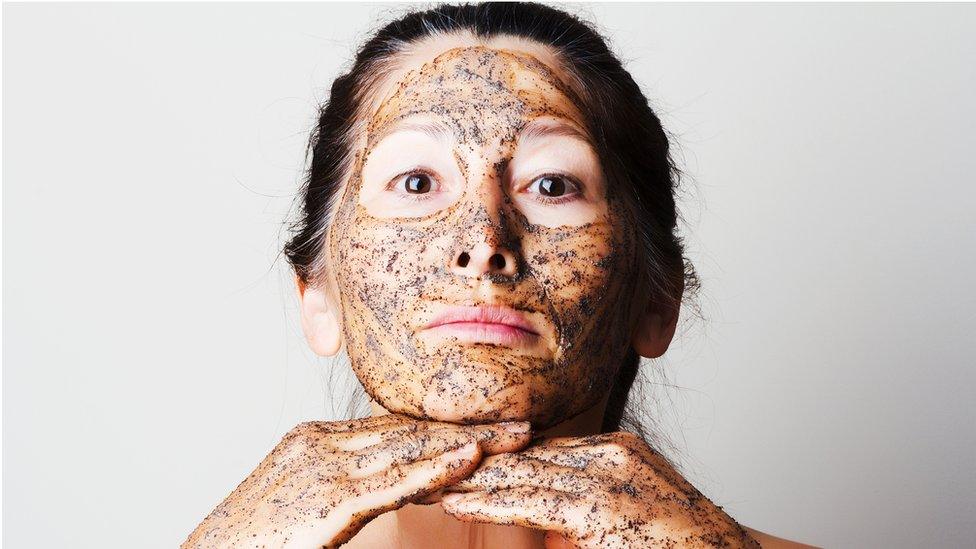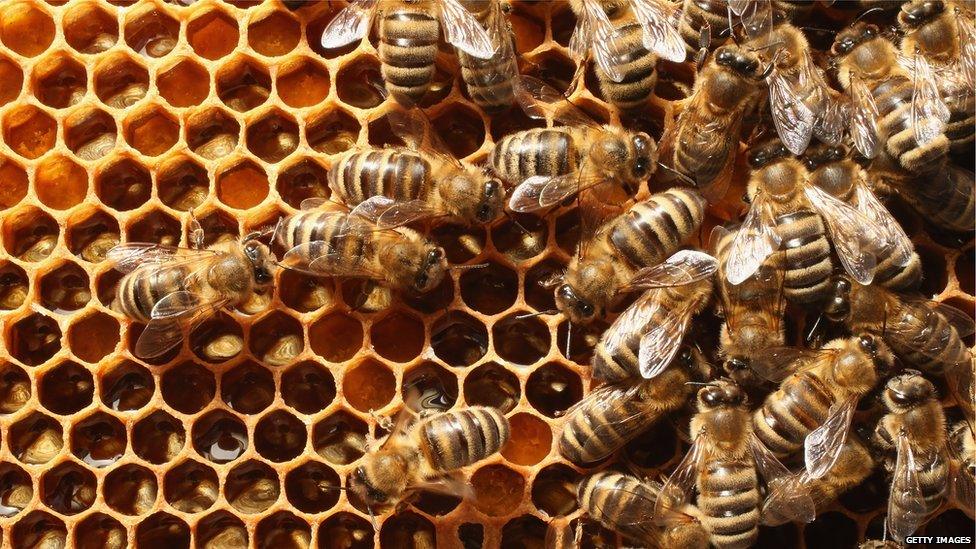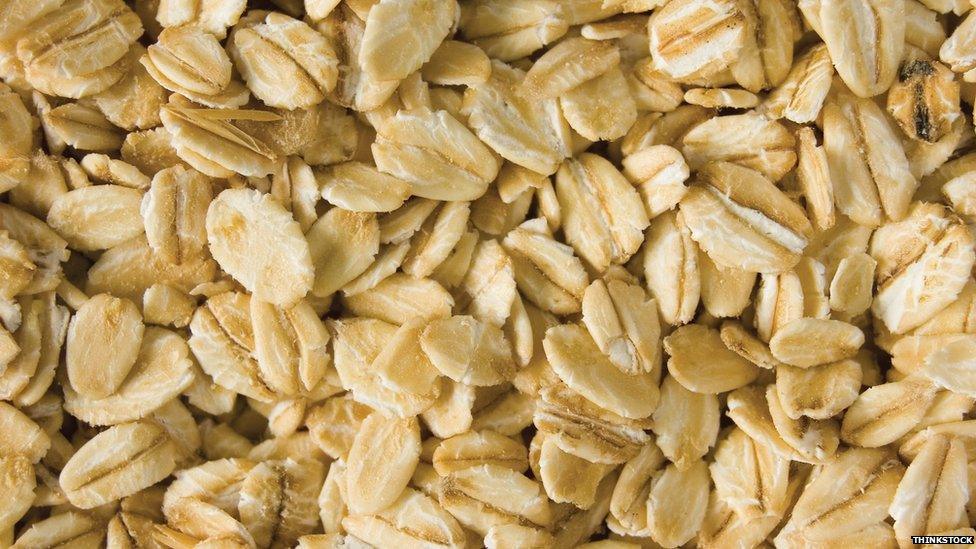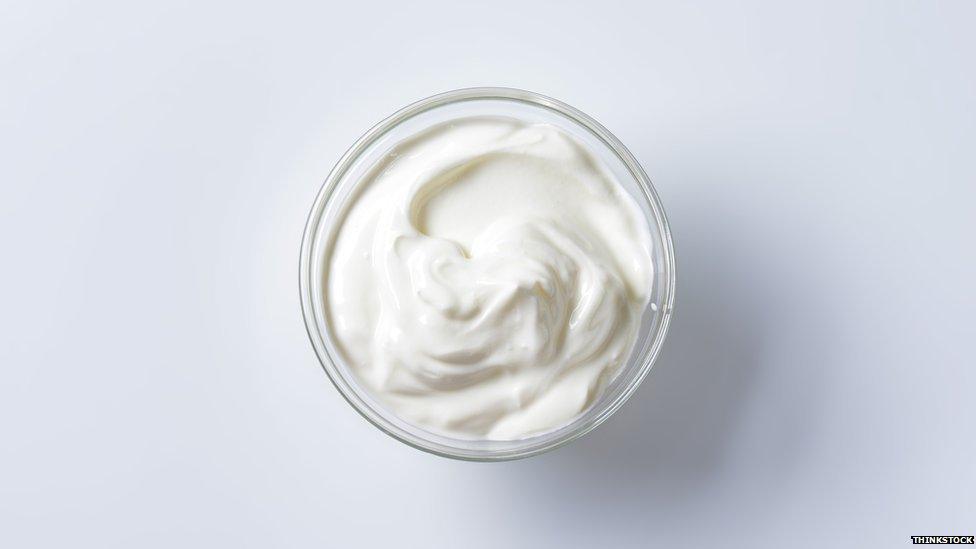Why your skin doesn't need microbeads
- Published

The news that microbeads could be banned may have got you wondering how you'll replace the contents of your bathroom cabinet.
MPs say the tiny plastic particles, found in many face scrubs and shower gels, are damaging oceans and marine life.
So we've asked skin care experts what else to use - and what to avoid.
"Thankfully there are a lot of natural alternatives out there", says dermatologist Dr Walayat Hussain.
The purpose of microbeads is to exfoliate the skin, and Dr Hussain, who is based in Leeds, says you can get the same effect without using plastic.
"The product itself doesn't make a difference, it's just [using] something that's natural giving you that tiny abrasiveness."

Brown sugar and honey
Natural beauty blogger Kim Wallace, external tells Newsbeat the best exfoliators can be found in your kitchen cupboard.
"Mix one tablespoon of brown sugar with one tablespoon of honey for a gentle and effective scrub.
"The honey has deep cleansing properties and the sugar exfoliates.
"And it kind of doubles as a mask. Leave it on your skin for 5 minutes and rinse."

Oats
It might sound strange, but porridge isn't just for eating. Oats are gentle exfoliants, and soothing for the skin. They can even help heal sunburn.
"This is particularly good for sensitive skin", explains Kim, who has been blogging for six years.
"You can grind up the oatmeal with a pestle and mortar, and using that with water gives a light easy exfoliation."

Yoghurt
"Another great tip is to use yoghurt as a mask", says Kimberly.
The lactic acid found naturally in yoghurt is used in lots of commercial skin products because it can help reduce acne breakouts and soften the skin.
"Because of the acids in there you're going to get that deeper clean feeling.
"You won't notice the difference overnight, but use it twice a week and you'll start to see a glow."

Blogger Kim Wallace
Dr Hussain of the British Association of Dermatologists says it's important to use gentle products on your face.
"Different areas require a different degree of abrasiveness.
"You can use coarser abrasive material such as rock salt and sea salt on your elbows and your knees, but I wouldn't recommend using that for an exfoliator on your face, where you want something more delicate.
"Do a little test patch of any product you're using for the first time. Just test it out on a small area, see how your skin reacts, see how it feels.
"The forehead's a good place to start because that's a more robust area."
Dr Hussain says exfoliation can be particularly beneficial for people with oily skin and acne, but scrubbing too hard will make it worse.
"What you don't want to be doing is scrubbing so hard that you are actually causing inflammation within the spots themselves and then causing scarring, so it's a delicate balance."
Find us on Instagram at BBCNewsbeat, external and follow us on Snapchat, search for bbc_newsbeat